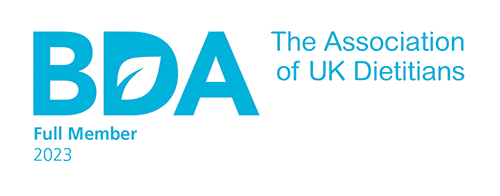Your children depend on you to provide food to keep them healthy. The ideal position is to provide a varied diet of good nutritional quality, while limiting less nutritious foods. Easy, right?
With childhood obesity in the media spotlight, what is the best way to try to ensure this happens? Is it better to take full control of food decisions? Or is there a case for allowing your child to have some food independence?
Parent Feeding Style – What’s yours?
You’re making spaghetti bolognese for dinner – do you:
A. Make it. Serve it. Expect your child to finish it. If they don’t, there will be a consequence (strict, or “authoritarian” style)
B. Tell your child you’re making spaghetti bolognese. Ask if they want the meat sauce mixed through the spaghetti or served separately. Ask how hungry they are and much they feel like. Then leave them to it. They either finish it or they don’t (flexible, “authoritative” style)
C. Cook some nuggets and frozen pizza as well because your child grumbled about having to eat spaghetti bolognese. Sure they have to eat something (soft, “permissive” style)
D. Change your mind. You can’t be bothered cooking at all. The kids can grab themselves a slice of toast (“negligent” style)
If you normally go for C. or D., these permissive and negligent parent feeding styles are consistently associated with an increased risk of childhood obesity.
What about A. the strict approach (authoritarian) or B. the flexible approach (authoritative)?
The evidence in a nutshell
Common behaviours associated with a strict, authoritarian approach are:
- restricting foods (usually those considered ‘bad’)
- pressuring to eat certain foods (usually those considered ‘good’)
- using food as a reward (for example for good behaviour)
- using food as a punishment or bribe (“you’re not getting a biscuit if you don’t finish your dinner”)
While all of these behaviours are very well intentioned, do they have the effect you want?
What impact does this approach have on your child’s long term relationship with food?
Unfortunately, evidence suggests that the strict parent feeding style may be counter-productive and is actually associated with an increased risk of obesity.
Restricting food:
- Gives it ‘forbidden fruit’ status and makes children want it more
- Makes your child less willing to try a wide variety of other foods
- Plants the seed of some foods being ‘bad’ and others being ‘good’, which can persist in unhelpful ways into adulthood
Pressuring to eat food:
- Fails to take in to consideration your child’s food preferences, likes and dislikes
- Leads to future avoidance of that food
Using food as a reward or comfort:
- Increases desire for that food
- Is habit forming and likely to persist into adulthood
- Associates with-holding of that food as being punishment
Using food as a punishment or bribe:
- Can lead to overeating of the withheld foods when the opportunity arises (eg at parties or grandparents)
- Associates provision of that food with being a reward.
All in all, a strict approach can do more harm than good. The irony is, well-intentioned parents with the highest degree of concern over their child’s weight are most likely to adopt the strict approach.
So this leaves the flexible, authoritative approach.
Give your child space to make decisions about what to choose and how much to eat, but under your watchful guiding eye. You will have to reduce control and increase trust. How?
Practical tips to getting flexible!
- Have a wide range of foods available and let your child decide what they want.
- Don’t label foods as ‘good’ or ‘bad’. Fruit is fruit, chocolate is chocolate.
- Give your child mini food responsibilities – ask them what they feel like eating, and give them options. This will teach them independent food decision making.
- Lead by example – let your child hear you say things like “I’ve had enough”, “I don’t feel like one right now”.
- Include them in shopping decisions – “What type of fruit and vegetables would you like me to buy this week?”
- When serving meals ask “How hungry are you?”
Don’t expect to get it right every time – your best guide is your child’s response. Have faith and let them surprise you!
Start from within
There is no doubt that navigating our current food environment is a minefield. But, if you want your child to grow up to be independent and confident in their food decisions, the training starts now.
If your child is overweight, NHS Choices website suggests “Be a good role model”. If your child is not yet overweight, but you have concerns about their eating, this remains sound advice.
To build your child’s healthy ‘relationship’ with food, you need to know how to be around food yourself. The role of food in your life, and how you use (or abuse) food will almost certainly have been influenced by how your food intake was managed as a child, and even by your adult experiences of dieting and weight control.
There are many parallels between the strict, authoritarian approach and today’s omnipresent adult dieting industry.
Evidence informs us it does little to help with childhood obesity – it has limited impact on adult obesity too.
Dieting experiences can diminish our ability to trust and conduct ourselves around food, yet we have responsibility for coaching our children. You may need to start by looking at your own relationship with food.
In time, you can learn to be a food and nutrition mentor, not a food dictator – and watch your child grow up comfortable around food and confident in their ability to manage it.


